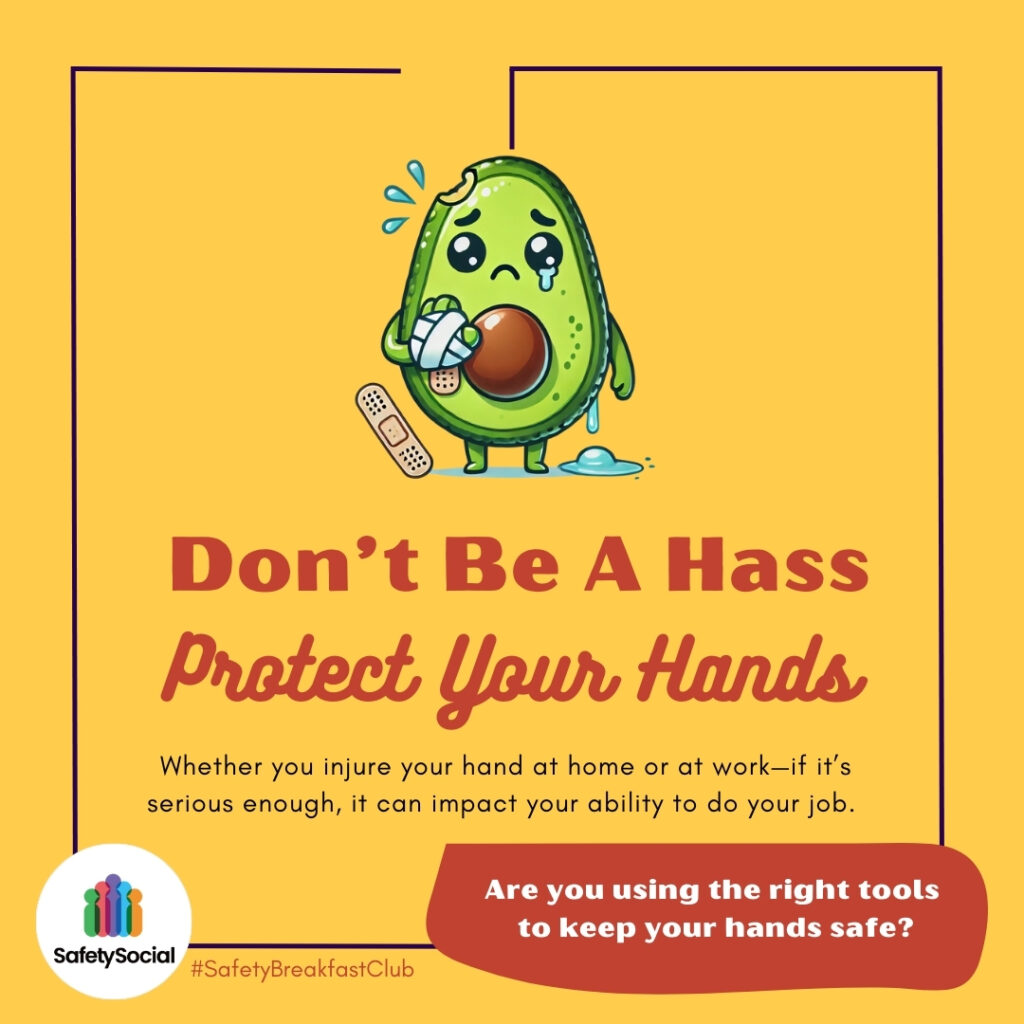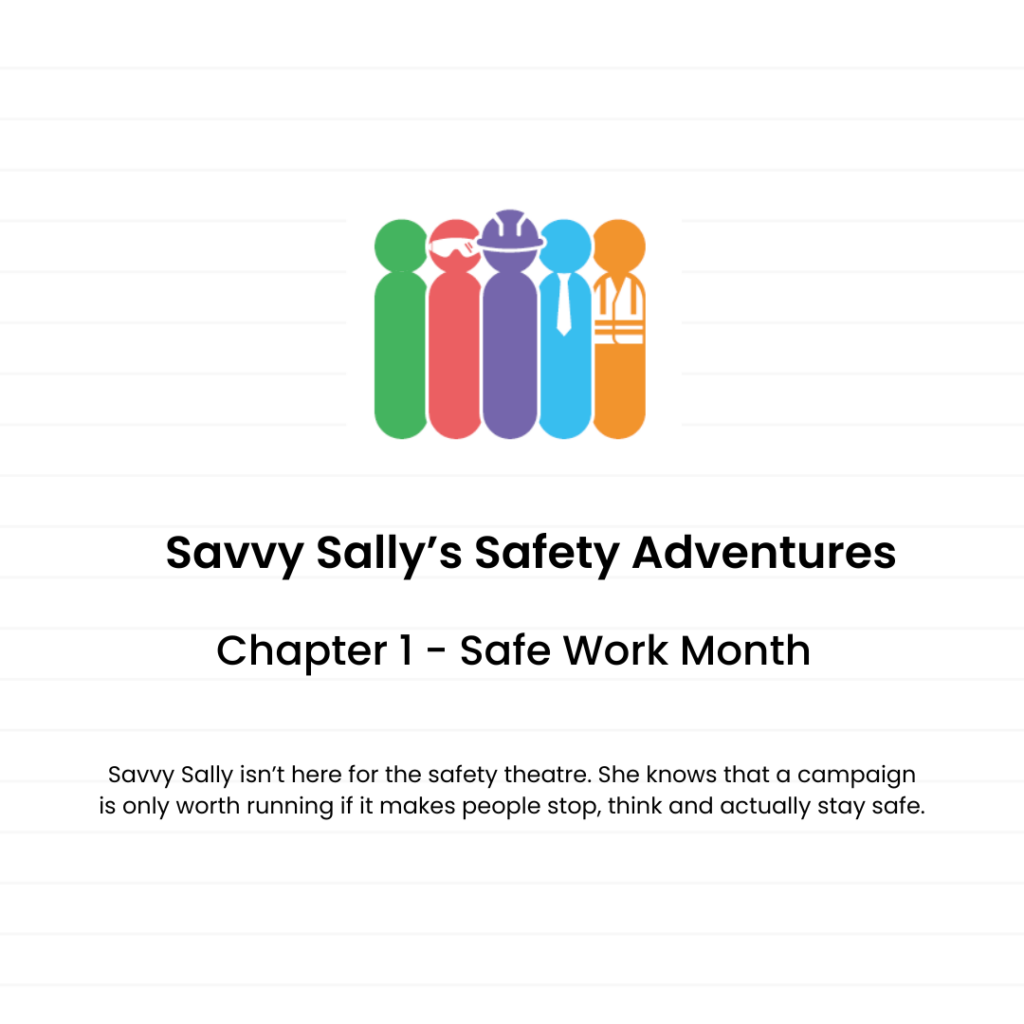We sat down with Libby O’Brien, GM of Strategy & Innovation at SafetySocial, to dive into the fun and quirky origins of The Breakfast Club safety campaign. What started with a conversation about ‘avocado hand‘ (yes, it’s a real thing!) turned into a creative way to make safety more engaging and, dare we say, enjoyable.
In this quick chat, Libby explains how we’re using humour, relatable scenarios, and simple tools to help safety professionals get people talking about safety—whether they’re on a mine site or in an office.
It’s clear that safety doesn’t have to be all serious, all the time. The Breakfast Club safety campaign proves that with a little creativity, you can catch people’s attention and get them to engage with safety. Whether you’re in a high-risk industry or a smaller business, this campaign is designed to start real conversations and bring a fresh approach to workplace safety.
Curious to learn more? Get your free copy of The Breakfast Club safety campaign to see how you can make safety simple, fun, and effective!
Video Transcript
What was the inspiration for the SafetySocial Breakfast Club campaign?
In part, where some of The Breakfast Club came together was a colleague actually sent me something about ‘avocado hand’, and I thought it was a typo. So, I wrote back and said, “Was this a mistake?” It turns out, avocado hand is a real thing—there are about 50,000 people who have injured themselves slicing avocados. And there’s a better way to open an avocado to reduce the risk of slicing your hand.
We really wanted to tap into some of those intriguing and fun ideas in safety to really help spread the message to businesses that aren’t usually thought of when people are coming up with safety messaging.
Who is this campaign for?
I think one of the things about safety is, when people hear ‘safety,’ they think of really high-risk industries, and that is absolutely part of safety. You’re thinking of mine sites or oil rigs—places that are unfortunately well-known for safety because terrible accidents have happened.
But actually, safety is much bigger than that. There are lots of businesses, including people who work in offices, that should also think about safety.
What makes The Breakfast Club different?
We think there’s a real opportunity of trying something different. We’ve really come at this with a marketing lens, which is very much focusing on who you’re trying to talk to, what message you want them to hear, and what action you want them to take.
Will it work for my industry?
We really tried in the campaign to provide examples and imagery that would resonate with people, irrespective of their workplace. So, if you’re in an office or on a mine site, the imagery and messaging of this campaign is really universal.
The idea is that the posters are temporary. You put one up, it encourages a conversation about safety. You do that for a couple of weeks, and we’ve mentioned a whole bunch of other mechanics you might use in line with that, and then you move onto the next one. You keep it interesting and engaging for people.
Isn’t safety more than just posters or a campaign?
Safety is absolutely more than just slapping a poster on a wall. One of the things we’re really trying to achieve at SafetySocial is meeting people where they’re at. And if you’re a small organisation or you’re a solo safety person, making a couple of steps to making things better and if that impacts a handful of people’s lives, then that’s a really good outcome.
Why did you decide to use humour in The Breakfast Club?
We wanted to use humour in The Breakfast Club because it gets people to engage. People often hear ‘safety’ and switch off or think it’s boring. Safety is serious, but that doesn’t mean that it has to be dull. Using things like funny videos, puns, and cute posters are all ways to get people’s attention and then use that to have a conversation about safety.
Why breakfast?
The origins of the idea of making it a breakfast campaign really really came from trying to understand people’s behaviours. Often, one of the first things people often do when they get to work—irrespective of if it’s in an office, a factory, or anywhere in between—is make a cup of coffee. The start of the day is also a great time to get people’s attention. They haven’t opened their inbox yet or gotten into the rhythm of the day, so when you’re trying to disrupt routine with messaging, that can be a really good time to do it.
Are posters really going to drive change?
When you’re trying to change something, particularly at work… let’s be real, change is hard. Having seen some of the messaging and imagery that’s used in safety, I think there’s a lot of opportunity to perhaps look at how we might do that differently. Look, we agree, putting a new poster on a wall is better than zero. But the real opportunity is about using those posters to start a different conversation, engage with people that might be disengaged, have a laugh. The posters are really just a mechanism to get people to engage. But just popping one up on a wall and then being disappointed when nothing changes, you really need to sort of look at the other ways you might engage your audience.
Tell me a bit about SafetySocial.
SafetySocial really came about when we looked at who was involved with safety. And there seems to be a lot in the big, high-risk industries, but there doesn’t seem to be a lot of support and community for those who perhaps work in smaller organisations. We really felt that safety is so well intended, usually trying really hard to achieve great outcomes, but sometimes maybe needs some support in making messaging effective and really getting people to engage with safety. For some people safety might only be as small part of their role, still a really important part, but they may not be a dedicated safety person. So, it’s really trying to give them tools that they can use to improve safety, even if it’s one percent at a time.


